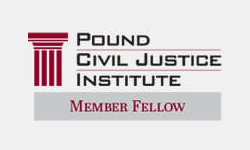When you filed a petition to divorce in a Connecticut court, you understood that you were doing something that would prompt big changes in your life. You might have even thought twice about it when you considered the potential repercussions it might have in your kids’ lives or concerning your personal finances. After ultimately deciding that you would rather sever ties than remain in an unhappy relationship, you began carefully planning your future.
Perhaps you had high hopes that you and your spouse would peacefully resolve all the important issues, sign necessary documents, then go your separate ways without a lot of stress or drama. Then, you noticed money missing from your jointly owned bank account. It’s definitely not the first time a spouse preparing for divorce has experienced this. It warrants further investigation because you might have a hidden asset problem on your hands.
Where else should you look?
If you ask your spouse why he or she withdrew money from your shared account without telling you, there is likely to be a logical sounding explanation. However, if your gut tells you something is not right, you are wise to rule out the possibility that your spouse is trying to keep certain assets from you. The following list shows signs that there is something underhanded going on:
- If your spouse claims to be paying back a loan or lending money to a relative or friend, it could be a red flag that he or she is trying to get someone to hold money until the court finalizes your divorce.
- Does your tax return have deductions for assets you didn’t know existed, such as property?
- Overpaying taxes is another way to hide money. This is another reason to carefully review tax returns if you suspect a hidden asset problem.
- Any missing asset should be cause for concern. If you already took inventory and discover an asset no longer there, it definitely warrants further inquiry.
Some spouses literally stash case in safes, safe deposit boxes or elsewhere when trying to hide assets in divorce. You have a right to your fair portion of marital property; therefore, you have a right to full disclosure, meaning your spouse must submit a complete list of assets and liabilities upon request.
Hiding assets in divorce is illegal
When your initial goal was to avoid conflict, settle things peacefully, finalize your divorce and move on in life, it can be upsetting and highly stressful if a hidden asset problem arises. The court will not look favorably on your spouse if you show evidence that he or she is hiding assets. It is illegal.
This is why most Connecticut spouses seek legal support in divorce to help protect their rights and financial interests. This is especially true for those who are going up against a spouse who refuses to adhere to state laws and regulations for divorce.










